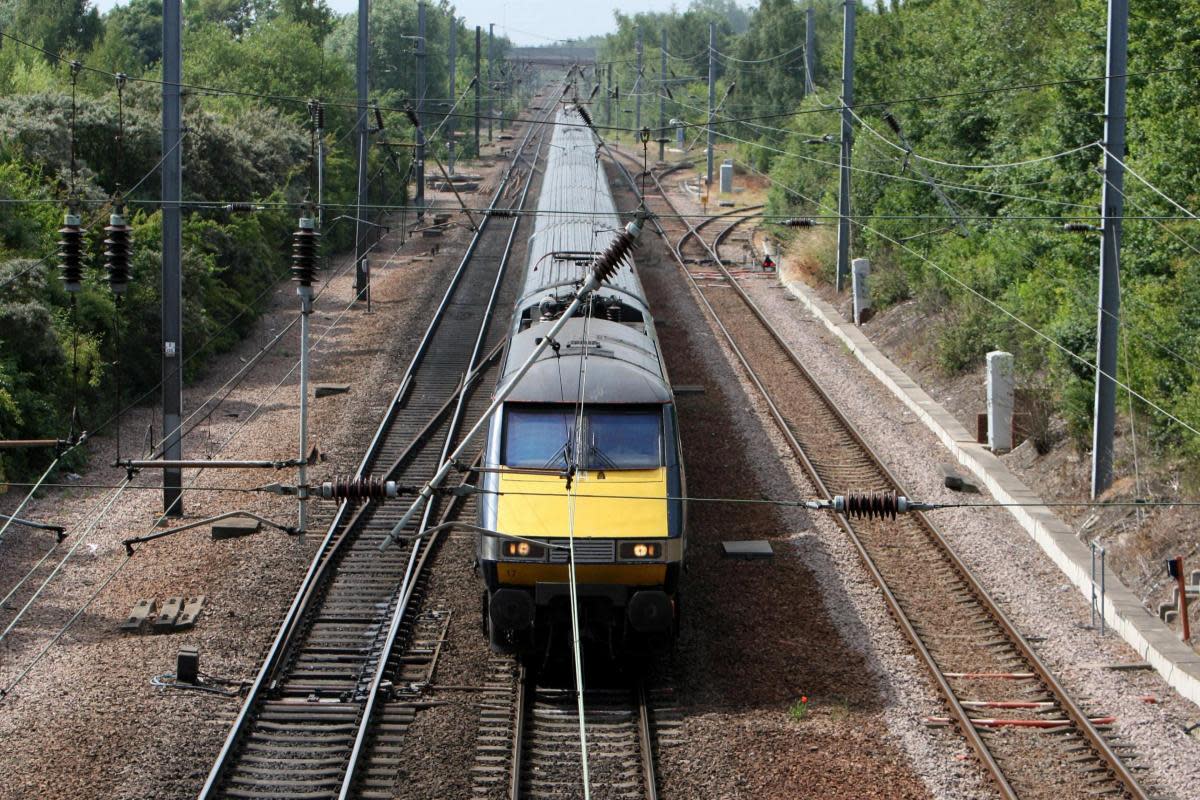Connect Scottish towns to rail network 'to save lives and boost economy', study says

A NEW rail link could boost the local economy and vastly reduce the number of fatal accidents on one of Scotland’s deadliest roads, a new study has found.
The Buchan Sustainable Transport Study, commissioned by the Campaign for North East Real (CNER) and the Aberdeen and Grampian Chamber of Commerce (AGCC), found that a railway connection from Aberdeen to Fraserburgh via Peterhead could reduce 75% of serious or fatal accidents on the road and support Scottish Government goals to prevent these outright by 2050.
Currently, commuters to Aberdeen need to use the A90 (N) / A952, statistically one of the deadliest single carriageways in Scotland.
READ MORE: Ministers urged to 'step in and save' Bannockburn battlefield from development plans
The study also found that the link could significantly improve economic fortunes, increasing the labour market for the region by 65%. Similarly, the line would increase job opportunities by 40% elsewhere for residents of Fraserburgh, Peterhead and the surrounding areas.
The findings come hot on the heels of the opening of the Levenmouth rail link, following a multi-million-pound Scottish Government investment – leaving Peterhead and Fraserburgh as the two largest towns in the UK furthest from the rail network.
The report also found the link could support the just transition from oil and gas to renewables and new jobs in the sector.
The study sets out options for a new rail line which would help address economic inequality in the region’s most deprived communities in Peterhead and Fraserburgh, with business leaders backing the proposal to extend the East Coast line to both towns.
Through data analysis and surveys with residents, the report produced evidence of stifled investment and job opportunities, alongside reduced access to healthcare, due to limited public transport and unreliable commuting times.
The new link would include the option for a freight link to St Fergus providing transport to the multi-billion-pound Acorn carbon capture and storage (CCS) and hydrogen development, while the wider line could connect workers to renewable energy opportunities centred around ports and harbours across the region.
READ MORE: Scotland to host global space conference leaving 'new lunar legacy' on region
The report also found that Buchan’s existing industries such as food, drink and tourism would also benefit, with fishing and seafood processing key sectors in Fraserburgh and Peterhead.
The preferred option consists of a new passenger and freight rail line created between Aberdeen city centre and Fraserburgh via Peterhead, including a mix of reinstated track and new alignment.
It would serve passengers with stops at Dyce, Newmachar, Ellon, Cruden Bay, alongside options for two freight spurs at St Fergus and Peterhead, and potential for new alignment to be created for a stop at Pitmedden.
The cost of the project would be determined through a follow-up detailed options appraisal, which campaigners are now calling on government to bring forward.
Funded through the Scottish Government Just Transition Fund, the Buchan Sustainable Transport Study was carried out by infrastructure and professional services consultancies AECOM and Stantec for CNER and AGCC.
Jordan Jack, general secretary of CNER, said: "This study has shown us that extending the East Coast Line northwards and maintaining the Formartine and Buchan Way as a cycle path is feasible and would be transformative for North-east Scotland.
“Evidence from this report underlines what locals live and experience every day: poor transport links are stifling our potential, damaging access to healthcare, and limiting job opportunities in the region.
“As this report attests, Fraserburgh and Peterhead are among the most deprived settlements in Aberdeenshire, and reconnection to the rail network will drastically improve people's economic fortunes, health outcomes, education and social inclusion."
Russell Borthwick, chief executive of the Aberdeen and Grampian Chamber of Commerce, said: “This report shows the scale of what’s possible – and as we’ve seen recently with Levenmouth and right here in the North-east with the AWPR, this vision can become a reality with the political will to make it happen.
“This link could reverse economic inequality and deliver a boost to Buchan, turbocharging its net zero, food and drink and tourism offerings. In addition, it could drastically reduce emissions from passenger and freight transport.
“I urge all key decisionmakers and political representatives to get behind this vast opportunity for our region.”

 Yahoo News
Yahoo News 
